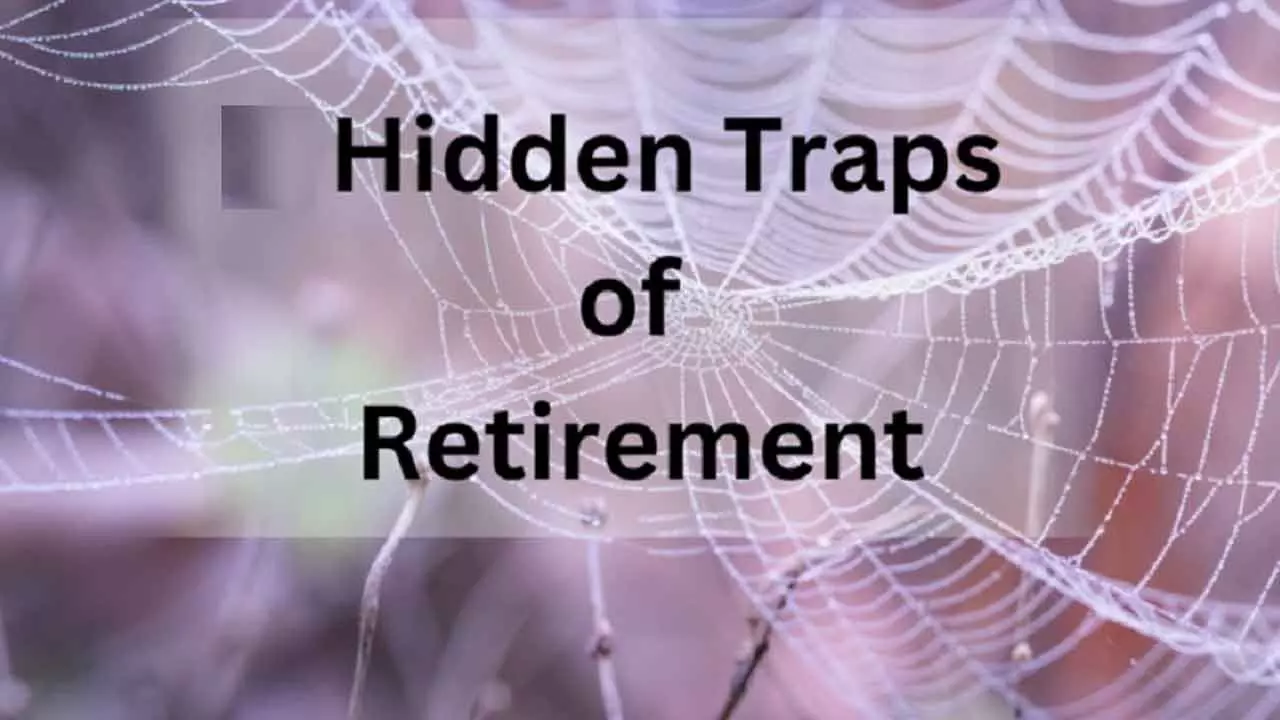How to avoid falling prey to common retirement trap
The most dangerous risks are often not market-oriented, but behavioral ones
How to avoid falling prey to common retirement trap

Financial planning is not just about growing wealth, it’s about protecting it from predictable emotional decisions. Ensuring your own security isn’t selfish but a foundation upon which a family’s long-term well-being is built
A recent interaction with an aging couple highlighted how much emotions take a toll on our decisions. This isn’t any unique story but is as common as it is concerning. An aging couple, with retirement on the horizon finds themselves at a crossroads,where deep emotional desire clashes with unyielding financial reality. Their situation serves as a powerful cautionary tale for anyone navigating family obligations and long-term planning.
This couple is nine years away from their target retirement age of 65. On paper, they look secure. They have built a good net worth through years of hard work. However, a closer inspection reveals a critical vulnerability: their wealth is predominantly locked in illiquid real estate, which is inherited and with one joint owned with extended family. Only about 40 per cent of their assets are financial, and within that slice, a significant portion is in debt instruments that are difficult to cash in quickly. A mere 13 per cent of their total net worth is in liquid mutual funds.
The impending trigger for a crisis arrived through their children’s wedding. Both children are independent and have explicitly absolved their parents of any financial responsibility for their upcoming nuptials. Yet, driven by love, tradition, and a heartfelt desire to contribute, the couple is determined to provide a substantial financial gift. This well-intentioned wish, however, threatens to derail their entire retirement plan.
A run of the numbers revealed a stark truth: gifting the amount they envisioned would completely destabilise their retirement. Their corpus would be depleted in under 20 years, a dire prospect given rising life expectancies and healthcare costs. The plan to work until 65 is itself optimistic, contingent on health and employability, thesefactors never guaranteed.
The weddings are slated for over the next two years, creating an immediate pressure point that their illiquid portfolio is poorly positioned to handle. This lack of liquidity has already created a dangerous domino effect. Of course, though, part of the portfolio could be accessed, this would deprive the power of compounding to work as this further curtails the time to less than seven years for their retirement goal.
As their debt investments couldn’t be easily accessed, the couple resorted to using their liquid mutual funds for recent emergencies and needs. When that wasn't enough, they did what so many do: they turned to high-interest credit card debt. Now, they are saddled with a sizable loan whose punishing is eroding their monthly income, further constricting their cash flow.
Compounding this issue is their joint family structure. While fulfilling in many ways, this living arrangement increases the frequency of unexpected financial outlays—medical needs, family events, or other emergencies—putting constant strain on a budget with no wiggle room.
This case highlights a critical principle in financial planning, that the most dangerous risks are often not market-oriented, but behavioral ones. The emotional urge to provide, especially for one’s children, is powerful. However, this instinct must be balanced against the hard math of sustainability. That’s the paradoxical truth - the most secure and lasting gift parents can give their children is their own financial independence. A retired couple who cannot support themselves financially often become a source of stress and obligation for their children later in life.
So, what can be done? The path forward requires discipline and difficult conversations. Prioritise debt elimination: The credit card loan is a high intense alarm. Its high interest is a wealth destroyer. Any spare liquidity must be directed toward eliminating this debt immediately. The next tranche of the debt maturity is to be diverted to clear off the loan.
Reframe the "gift": The couple must openly discuss their financial constraints with their children. A smaller, more symbolic gift funded from cash flow, or a non-cash gift of time and supportcan be just as meaningful without jeopardising their future.
Conduct a liquidity audit: They must work with an advisor to restructure theirportfolio. This involves identifying any debt instruments that can be exited or restructured to improve liquidity, creating a clear ladder of accessible funds for emergencies.
Fortify the budget: A rigorous review of their joint family budget is needed to plan for inevitable unexpected expenses, creating a dedicated emergency fund separate from their retirement corpus.
The takeaway is clear. Financial planning is not just about growing wealth, it’s about protecting it from predictable emotional decisions. Ensuring your own security isn’t selfish but a foundation upon which a family’s long-term well-being is built.
By choosing a secure retirement over a lavish gift, this couple wouldn’t be withholding from their children, they would be giving them an invaluable peace of mind that their parents will be just fine.
(The author is a partner with “Wealocity Analytics”, a SEBI registered Research Analyst firm and could be reached at [email protected])

